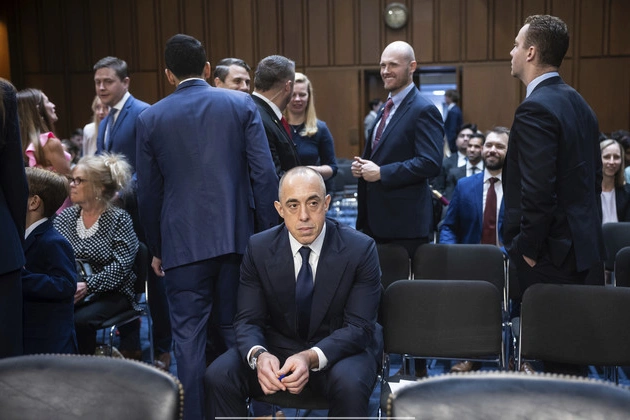
President Donald Trump’s first term witnessed a significant emphasis on reshaping the federal judiciary, dominating Senate proceedings for nearly four years. However, amidst current foreign challenges and domestic policy matters, judge nominations have taken a backseat.
Emil Bove’s Fiery Nomination Hearing
Recently, Emil Bove, Trump’s ex-personal lawyer now serving in a key Justice Department role, faced a heated Senate Judiciary Committee hearing regarding his appeals court judgeship nomination.
The nomination of Bove indicates a shift in Trump’s judicial selection approach, aligning with his ongoing legal battles in federal courts.
Partisan Divide Over Judicial Appointments
The intense questioning of Bove by Democratic panel members focused on his loyalty to the president, evident from his past legal representation and professional decisions.
The contentious hearing underscores the deepening partisan rift over federal judgeships, reminiscent of the Kavanaugh confirmation turmoil.
Despite the current limited judicial vacancies, the potential retirement of senior Republican-appointed Supreme Court justices could prompt further nomination battles.
Bove’s Nomination Implications
If confirmed to the 3rd Circuit, Bove could emerge as a Supreme Court contender. His nomination raises questions about the politicization of justice and potential impacts on legal integrity.
Democrats’ concerns about Bove’s involvement in controversial actions, such as pardons and case dismissals, highlight the high stakes of his nomination.
Senate Dynamics and Confirmation Challenges
With Republicans holding a Senate majority, Trump’s nominees face less opposition, relying on unified GOP support for confirmation.
The absence of the “blue slip” policy for circuit judges further streamlines the nomination process, enhancing the administration’s judicial influence.
The presence of senior Justice Department officials at Bove’s hearing signals the gravity of his nomination and the administration’s backing.
Scrutiny on Judicial Independence
Bove’s hearing reflected broader concerns over judicial independence and the potential influence of political affiliations on legal decisions.
Democratic efforts to challenge nominees’ impartiality underscore the ongoing struggle to uphold judicial autonomy amidst partisan pressures.
While Bove’s nomination remains contentious, the evolving judicial landscape under Trump’s presidency continues to shape the future of the federal judiciary.











